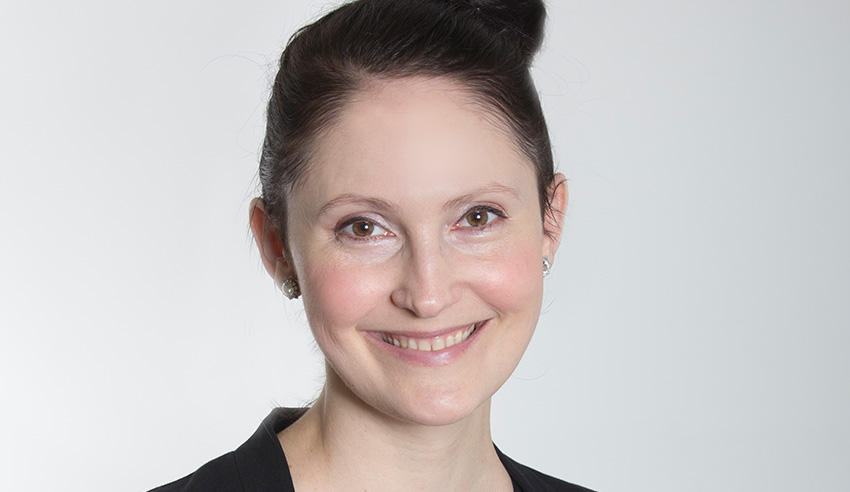How the Federal Court supported a new mother run a class action
Juggling a newborn and a women’s health class action was always going to be tough for Rebecca Jancauskas. Support from the court – as well as from her firm, family and litigators on the other side – made it much more achievable, she says.

In late November, the Federal Court of Australia found in favour of women who were impacted by pelvic mesh implants sold by Johnson & Johnson and Ethicon which were “not fit for purpose”, in what Shine Lawyers – the firm that ran the class action – called a win for “brave women” fighting against some of the world’s biggest companies.
“Although later versions [of the product] did list erosion and extrusion as potential adverse reactions, they did so in a way that was misleading or deceptive,” her honour determined.
Speaking recently on The Lawyers Weekly Show, Shine special counsel for class actions Ms Jancauskas said the judgment was a “rare pronouncement” by the Federal Court as to how product claims will be determined in Australia moving forward.
“It has been a long journey towards justice for the many women whose lives were destroyed by the defective pelvic mesh and incontinence tape implants,” she said.
For Ms Jancauskas, the personal journey in running this class action was also significant, in that her daughter was just five months old when the trial began.
“Running [a trial] over the course of seven months, it was a real adjustment to [balance] the early mornings, the late nights, the pressure of running such an intricate and long trial and then adjusting to being a mother for the first time and dealing with sleep deprivation,” she recounted.
“And, the guilt of being away from my young daughter was all really challenging.
“But, with the support of my fabulous husband and the team at work, it was all achievable.
“It really is remarkable, I think, what we can adapt to and what we can achieve that we may not have thought possible. And now, here I am, the judgment has been delivered, and I’m in the later stages of pregnancy again.
“It’s somewhat ironic I suppose that next year when we anticipate the appeal in this matter will be heard that I’ll be juggling a new baby again.”
Ms Jancauskas outlined, on the episode, how the Federal Court had also provided much-needed support for her to breastfeed her daughter while the trial was ongoing.
“We reached out to the Court Registry in the weeks leading up to the trial and asked if there was an available facility at the Federal Court that I could use so that I could breastfeed my daughter in the breaks. There wasn’t. So, the court – in a first – made available to me a room that I could use, and I believe that has now established a bit of a precedent, and barristers and solicitors in other long-running matters have done the same thing,” she said.
“I think it’s fantastic that that allowance was made, and it’s a recognition of the fact that, these days, for many of us working mums, life doesn’t stop. I mean, we want to both be a better mom as we can as well as continuing with our professional endeavors.”
Her carer needs become almost a “source of amusement” for those on both sides of the aisle, she said, with all barristers and solicitors cognisant of her need to “set off with my bag and my breast pump” during adjournments.
“There was, I think, a great sense of support from everyone involved with the case as well. A recognition that I was juggling some competing responsibilities and the fact that everyone was so accommodating and supportive of that was really fantastic,” she said.
The experience taught Ms Jancauskas that – for lawyers who are also soon-to-be parents or new parents – simply asking for allowances can sometimes be all that is needed to get the accommodations one needs to manage the juggle.
I think if something is important to you – if it’s important to try to do the juggle as so many of us want to – you need to make known what your needs and wants are. I’ve been overwhelmed and surprised by how supportive all sorts of people, from my colleagues at work to people on the other side, to the court to just strangers, can be,” she reflected.
“I think that really now we’re fortunate to live in a world where women can be supported. No one can really do it all, but [you can] give it a good red hot crack.”
To listen to Jerome’s full conversation with Rebecca Jankcauskas, click below:

Jerome Doraisamy is the managing editor of professional services (including Lawyers Weekly, HR Leader, Accountants Daily, and Accounting Times). He is also the author of The Wellness Doctrines book series, an admitted solicitor in New South Wales, and a board director of the Minds Count Foundation.
You can email Jerome at: